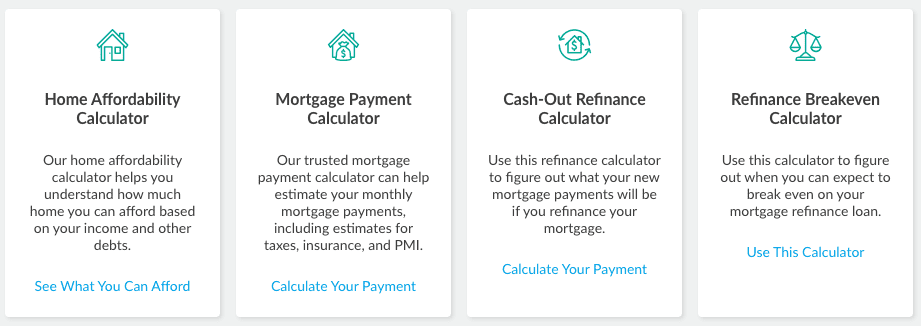Maintenance conflicts that emerge after the death of a customer often expose that loans should not have been released in the first place. U.S.A. TODAY's analysis of reverse home loan financing patterns and foreclosures discovered clusters in African American metropolitan neighborhoods evidence of predatory practices, according to market watchdogs (who issues ptd's and ptf's mortgages). The work was a partnership with Grand Valley State University, with support from the McGraw Center for Business Journalism.
Department of Housing and Urban Advancement has actually mandated stronger monetary evaluations of elders before a loan is provided. Latoya Gatewood-Young was amazed to find out there were 5 people on the title to her grandfather's home, which has actually remained in her family for a century. Jasper Colt, U.S.A. TODAYWhen Gatewood-Young's grandpa passed away in 2016, the household was shocked to discover that his rural Maryland home on 10 acres had a reverse home loan lien versus it. Sometimes, the beneficiaries might pick to deed the residential or commercial property back to the loan provider, implying the beneficiaries launch the property to the lending institution and the loan provider becomes the brand-new owner. Although this need to be reserved for circumstances where there is no excess equity left, it is a feasible means to avoid foreclosure and for the successors to ignore the property without any more financial obligations.
These are backed and insured by the FHA and overseen by the U.S. Department of Housing and Urban Development (HUD). Government-backed loans provide advantages developed to secure customers, making it through spouses, and their beneficiaries. In addition, HECM reverse home mortgages are non-recourse loans, indicating a lending institution can not seek recourse against other possessions for repayment.
In summary, if a co-borrowing partner or successor acquires a home with a reverse home loan, they will never ever owe more than the residential or commercial property deserves and they will never ever be pushed into selling their assets to cover the debt. If they offer the house for more than the balance of the reverse home loan, they can keep the remaining equity as earnings.

When a loved one passes away, life can feel chaotic. By having a look at the typical timeline of a reverse home loan after death, you and your family can prepare for how to settle your affairs and minimize confusion later. A loan servicer sends a condolence letter usually within 1 month of the death of the last enduring customer.

Beneficiaries will get six months' time to pick how to continue. Throughout this time, interest on the loan balance continues to accrue and month-to-month insurance premiums should be paid, so it's within the heir's benefit to act rapidly when handling a reverse home loan after death. If necessary, the estate might request approximately 2 90-day extensions, subject to HUD's approval.
Not known Incorrect Statements About What Banks Give Mortgages Without Tax Returns
After this time, the loan might go into default and a servicer might start the foreclosure treatments on a reverse mortgage home. According to the National Reverse Mortgage Lenders Association (NRMLA), a servicer may initiate foreclosure on a reverse home loan after death if: The initial Due and Payable notice is overlooked https://writeablog.net/edelin8e8n/in-other-words-the-fha-loan-program-is-not-planned-to-be-utilized-for The home has actually not sold after the 90-day extensions have actually ended The borrower has no successors If beneficiaries are actively working to organize financing or offer the home to please a reverse home mortgage after the owner passes away, the foreclosure may be delayed.
Speaking about how to prepare for life after death can be unpleasant for some families, however by making sure you and your loved ones are prepared for what follows, you can take pleasure in life together to its fullestwith less tension later on. If you're still uncertain about how a reverse mortgage works and would like information on this form of financing, do not think twice to call a practical member of our GoodLife group who will more than happy to address your concerns or click the link below.
If you get a Home Equity Conversion Home Mortgage (HECM) the most common type of reverse mortgagethe loan ends up being due and payable under specific situations, like when you die. Your successors will then have several options for handling that financial obligation. They can: pay off the reverse home mortgage and keep the house sell the house and utilize the earnings to pay off the reverse mortgage financial obligation give the property to the lender, or let the lending institution foreclose.
HECMs are nonrecourse, which means that the loan provider can't get a deficiency judgment after a foreclosure or deed in lieu of foreclosure. In a regular home loan, the debtor gets a lump amount from the lending institution and makes month-to-month payments towards paying the money back, plus interest. With a reverse mortgage, rather of getting an in advance quantity that the customer has to pay back gradually, the debtor generally gets routine payments, up to the optimum loan amount.
A reverse home mortgage can likewise come in a lump sum. The borrower needs to pay the loan back unless and until specified occasions happen, like when the debtor dies and the residential or commercial property is not the primary house of at least one enduring customer. Prior to getting a reverse mortgage, you must totally comprehend how they work, and find out the risks and requirements connected with them.
After the customer dies and the property is not the principal house of a minimum of one surviving debtor, the heirs can deal with the financial obligation in one of the following 4 ways. With a HECM, under HUD guidelines and guidelines, the successors may keep the house by paying Hop over to this website the mortgage balance or 95% of the existing appraised worth of the home, whichever is less.
Things about What Is The Interest Rate Today On Mortgages
With a HECM, heirs might offer the home for the lesser of the loan balance or 95% of the appraised worth of the home. The successors can sign over the title to the house to the lending institution with a deed in lieu of foreclosure. Offering the residential or commercial property to the lending institution will satisfy the debt and prevent a foreclosure. what do i need to know about mortgages and vacation ownership interest rates.
( To find out more, see Nolo's post Foreclosure of Reverse Home Loans.) HECMs are nonrecourse, which means that the lending institution can't get a deficiency judgment after a foreclosure or deed in lieu of foreclosure. Likewise, if the beneficiaries pay off the loan or offer the property, they will not need to pay more than 95% of the appraised worth.